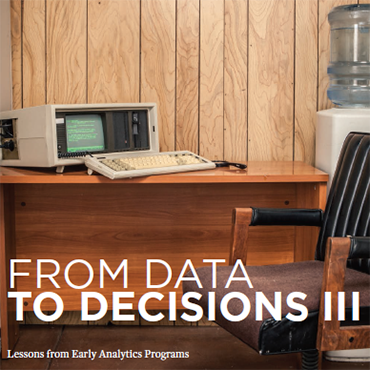Lessons learned in federal analytics programs
Report details 'mature data programs' that allow federal managers to discover what works and what doesn't.

What: "From Data to Decisions III: Lessons from Early Analytics Programs," by the Partnership for Public Service and the IBM Center for the Business of Government
Why: The federal government has analytics programs going back decades. As agencies look to find new ways to use their data to measure performance and make projections about the future, these early success stories provide a road map for smart thinking about analytics.
In 1986, the Agency for International Development launched the Famine Early Warning Systems Network to combine data about factors that contribute to the outbreak of famine. The service combines satellite weather data and agricultural information with data on trade from U.S. and international organizations to project the vulnerability of various parts of the world to famine. The early warning system gives aid agencies and nongovernmental organizations a heads-up on trouble spots, and is used to help direct about $1.5 billion in food aid per year. The Centers for Disease Control and Prevention launched a system called PulseNet in 1996 to trace incidents of foodborne illness back to their sources. The network connects 87 public health labs and saves an estimated $291 million in medical costs annually. Other case studies involve defense against invasive plant and animal species and a biometrics database designed to track adversaries and insurgents in Iraq and Afghanistan.
These "mature data programs" provide an opportunity for federal managers to discover what works and what doesn't, according to the report. Effective programs have a few common characteristics, including a powerful sponsor inside the agency, the ability to show return on investment, and motivated users who refine the analytic tools and provide answers to mission-critical questions.
Verbatim: "Most analytics pathbreakers are strikingly collaborative. They seek out like-minded souls who might already have collected data they can adapt to their purposes or who have developed new methods for prying out or combining it."
Download: Get the report.
NEXT STORY: Feds sound off on morale






